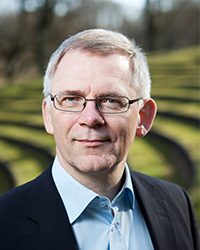
Brian Bech Nielsen, Rector at Aarhus University
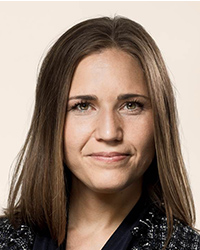
Marie Bjerre, Minister for Digitalisation and Minister for Gender Equality

Jacob Bundsgaard, Mayor of Aarhus
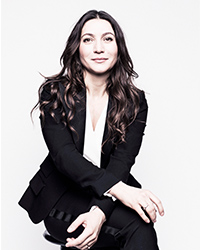
Natasha Friis Saxberg, CEO Danish ICT Industry Association
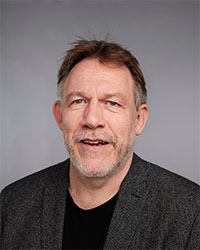
Head of Department, Professor Kaj Grønbæk
Title: Department of Computer Science anno 2023
Bio: Kaj Grønbæk, has a PhD in computer science from Aarhus University in 1991. He became Danske Bank Professor in Computer Science at AU in 1999. His field of research is Ubiquitous Computing and Interaction. In 2018 he became Head of Department of Computer Science, AU. He is Chairman of the ATV's Digital Wisemens council. Vice Chairman of the board of Alexandra Institute (www.alexandra.dk) and member of the boards of DIREC (www.direc.dk) and DigitalLead (www.digitallead.dk). Kaj Grønbæk has over the past 25 years been the PI or Workpackage lead in several large projects and centers, many of which involved company collaboration. Recently, he is involved in Innovation Fund projects related to utilizing health data from wearables (www.healthd360.dk) and Industry 4.0 (www.made.dk). In these projects, he works on making data analysis and industrial processes understandable and accessible to users and domain experts through Visual Analytics and Augmented Reality methods.
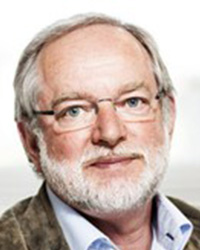
Professor Emeritus Mogens Nielsen
Title: The Rise of Computer Science at Aarhus University
Abstract: We shall attempt to recall some of the pioneering atmosphere when computer science was born at Aarhus University during the years following the late 1960’s – to the best of our fading memory.
Short bio: Academic career at Aarhus University starting with MSc (1975) and PhD (1976) in computer science – professor emeritus since 2016. Associate researcher in the UK at Universities of Edinburgh (1977-79) and Cambridge (1986), Vice-Dean for research at the AU Faculty of Science and Technology (20013-2015). Co-founder and co-director for BRICS Research Centre and International PhD School (1994-2006). President of the European Association for Theoretical Computer Science (2002-06), member/chair of European Research Council computer science panel (2011-18). Chair of the Danish Research Council for Natural Science (1989-91), member of the Board of the Danish National Research Foundation (2006-11).
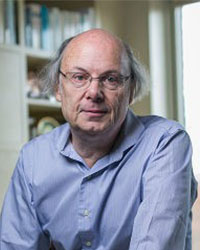
Honorary professor Bjarne Stroustrup
Title: The Programming World Speaks Danish
Abstract: Algol, C++, C#, Java, PHP, Ruby on Rails are designed by Danes or have had significant input from Danes. Here, I focus on Aarhus' contribution prompted by Kristen Nygaards visits. This led to Beta, that influenced Java, and to C++ that influenced most modern programming languages. I emphasize C++'s dual roots in abstraction mechanism and concerns for hardware utilization.
Bio: Bjarne Stroustrup is the designer and original implementer of C++ as well as the author of The C++ Programming Language (4th Edition) and A Tour of C++ (3rd edition), Programming: Principles and Practice using C++ (2nd Edition), and many popular and academic publications. He is a professor of Computer Science at Columbia University in New York City. Dr. Stroustrup is a member of the US National Academy of Engineering, and an IEEE, ACM, and CHM fellow. He received the 2018 Charles Stark Draper Prize, the IEEE Computer Society's 2018 Computer Pioneer Award, and the 2017 IET Faraday Medal. He did much of his most important work in Bell Labs. His research interests include distributed systems, design, programming techniques, software development tools, and programming languages. To make C++ a stable and up-to-date base for real-world software development, he has been a leading figure with the ISO C++ standards effort for more than 30 years. He holds a master’s in Mathematics from Aarhus University, where he is an honorary professor in the Computer Science Department, and a PhD in Computer Science from Cambridge University, where he is an honorary fellow of Churchill College. www.stroustrup.com.
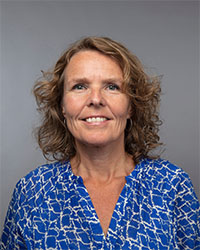
Speaker: Professor Marianne Graves Pedersen
Title: The rise of IT Product Development
Abstract: In 2007 the Department of Computer Science launched a new education – IT-product development – that combines computer science with physical product design disciplines. The motivation for the education was the growing variety of physical IT-products going beyond the traditional computer with keyboard and pointing devices. An example of such an IT-product that changed our interaction with computers forever was launched in 2007 - a smartphone with no keyboard buttons and no pointing devices except the user’s fingers.
A variety of IT-products with non-traditional computer interaction are being developed for smart buildings, cars, public spaces, the home and to be worn on the human body. The combination of disciplines in the education gives students the competences to design and develop such new types of IT-products. The launch of the education fuel a growth of the number students at the department with 300% over a 4-year period. Many of the graduates engage in entrepreneurship and start-ups after graduation.
Bio: Professor, Department of Computer Science, Aarhus University, 2023-
Chairman of the Teaching Committee at the Department of Computer Science
PhD in Computer Science, Department of Computer Science, Aarhus University
MSc in computer Science with subsidiary subject in physical. Aarhus Universitet, 1997
MSc in Human Computer Interaction (with distinction), University of London, 1996
Marianne is particulary recognized for her contributions to tangible and shape-changing user interfaces.
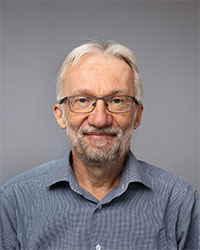
Professor Ivan Damgård
Title: Secure Multiparty Computation: From basic research to applications and back.
Abstract: We give a brief account of how multiparty computation started as a basic research topic in the late 80-ties, and how it developed into a mature technology with great commercial potential and a rich theoretical background.
Bio: Ivan Damgård is a professor of Computer Science at Aarhus University, where he studied, and has worked since the 1980s. He works on the theory and practice of cryptography and the underlying algorithms and mathematics of the field. He has supervised 30+ PhD students and is the author of 200+ scientific publications.
He is a fellow of the International Association for Cryptologic Research (IACR) and has received several awards, including the 2015 RSA conference award for excellence in mathematics, the 2020 STOC test of time award and the 2022 TCC test of time award. He is also the receiver of an ERC advanced grant and the Villum annual award.
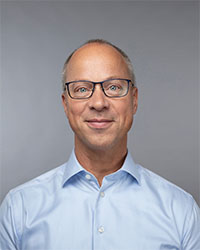
Professor Lars Birkedal
Title: Iris: a Higher-Order Concurrent Separation Logic Framework
Abstract: We give a brief overview of the Iris Framwework, which can be used for formal reasoning about safety and security of a wide variety of concurrent programs.
Bio: Lars Birkedal is Professor of Computer Science at Aarhus University. He received his Ph.D. in Computer Science from Carnegie Mellon University, USA, in Dec. 1999 and until Dec. 2012 he was at the IT University of Copenhagen, Denmark. He served as Head of Department at Computer Science in Aarhus from 2014 to 2017. Lars Birkedal is a Fellow of the ACM, an elected member of the Royal Danish Academy of Sciences and Letters, the recipient of a Villum Investigator grant from the Villum Foundation 2019, the Danish Minister of Research Elite Research Award 2015 ("Videnskabsministeriets EliteForsk-pris"), a Sapere Aude Advanced Grant from the Danish National Science Research Council 2013, and the ACM SIGPLAN Milner Award 2013. He served as the Editor-in-Chief of the journal Logical Methods in Computer Science from 2014 until 2020 and is now a member of the board of the journal, and served as PC Chair for the POPL 2020 conference. Lars Birkedal's main research interests lie in the area of logic and semantics of programming languages and type theories. Current work focuses on program logics for reasoning about concurrent, higher-order, and imperative programs; cyber-security; and type theories with guarded recursion.
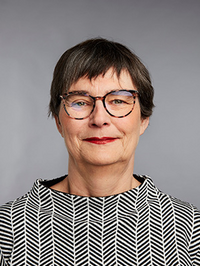
Professor Susanne Bødker
Title: Participatory design and traces of impact on the research field of Human-Computer Interaction
Abstract: The talk will trace the meetings of the Aarhus-Oslo school of Participatory Design (PD) and Human-Computer Interaction (HCI) since its start in the 1980s. It will exemplify the footprints left by PD on HCI (and vice versa) and discuss the role that PD has today in HCI research and practice.
Bio: Susanne Bødker is professor of Computer Science at Aarhus University, where she studied, and has worked since the 1980s. She has educated numerous generations of computer science, multimedia and IT Product design students. Her research field is Human-Computer Interaction, with specific focus on Computer Supported Cooperative Work, Theory of Human-Computer Interaction, and Participatory Design. She is well-known internationally for her contributions to the second wave of HCI theory, and her work with Activity Theoretical HCI.
She has received that ACM SigDOC Rigo award 2008 for extraordinary lifelong achievements “for her contributions to participatory design, computer-supported cooperative work and human-computer interaction”, and the IFIP TC13 Pioneer Award, 2016. She is member of the ACM CHI Academy 2010 for lifelong achievements, honorary doctor, Royal Technical University (KTH), Stockholm 2018 and member of the Royal Danish Academy of Sciences and Letters.
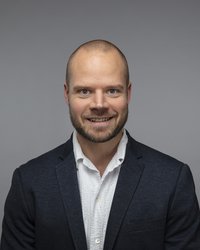
Professor Kasper Green Larsen
Title: How fast can we go?
Abstract: Algorithms and data structures are all about speed. The overarching goal of the field is to understand precisely how quickly we can analyse and manipulate data. In this talk, I will present two examples of data structures invented at CS-AU, which have had a profound impact in both theory and practice. I will then ask the foundational question of whether it is possible to develop even faster data structures. In many cases, the answer is “No”. Proving such negative results allow us to understand the barriers for efficient data analysis. I will then highlight some of my own research, that to this date, proves the strongest known such barriers.
Bio: Kasper Green Larsen is 36 years old and a newly appointed professor at the Department of Computer Science. But despite his young age, Kasper Green Larsen has an impressive array of groundbreaking research results and awards behind him and is passionate about making his mark on a field that is more needed than ever. Read more about Kasper: https://cs.au.dk/news-events/professor-appointment-kasper-green-larsen